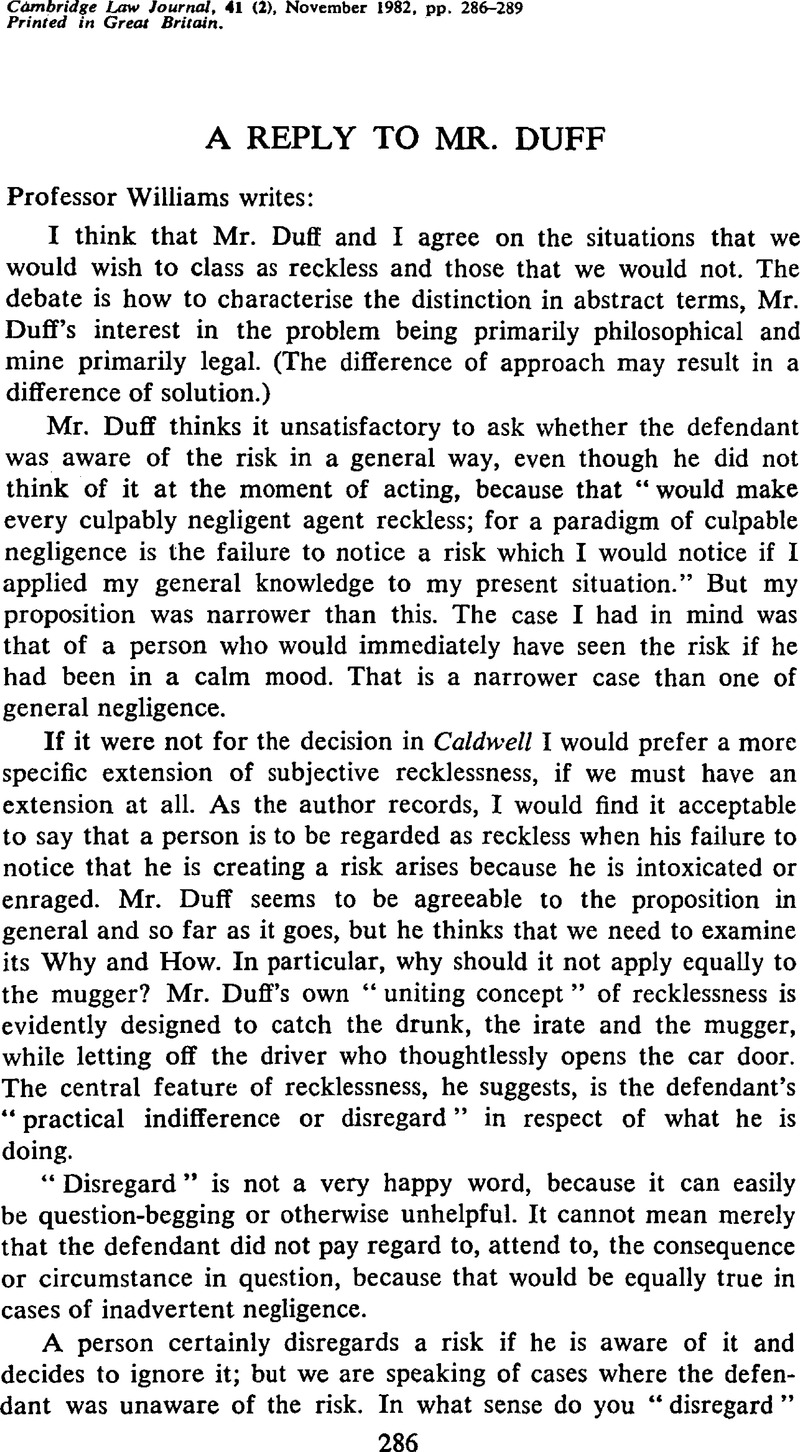Article contents
A Reply to Mr. Duff
Published online by Cambridge University Press: 16 January 2009
Abstract

- Type
- Reply
- Information
- Copyright
- Copyright © Cambridge Law Journal and Contributors 1982
References
1 (1875) 1 Q.B.D. 23.
2 (1944) 60 T.L.R. at p. 272.
3 (1889) 14 App.Cas. 337.
4 Incidentally, I am unconvinced by Mr. Duff's tertium quid between the man who knows that his statement is false and the man who does not know whether it is false or true. He puts the case of a man whose whole attention is absorbed by questions of style, etc. A philosopher may see some difficulty here, but I do not think that any jury would. If the man knew that he was making a statement, and that the truth of the statement was his responsibility, and if he did not believe the statement to be true, he would pretty certainly be accounted reckless by a tribunal, even on the most subjectivist definition.
5 [1977] Q.B. 354, 363.
6 [1981] A.C. 394, 408.
7 [1970] 1 Q.B. 152.
- 1
- Cited by


